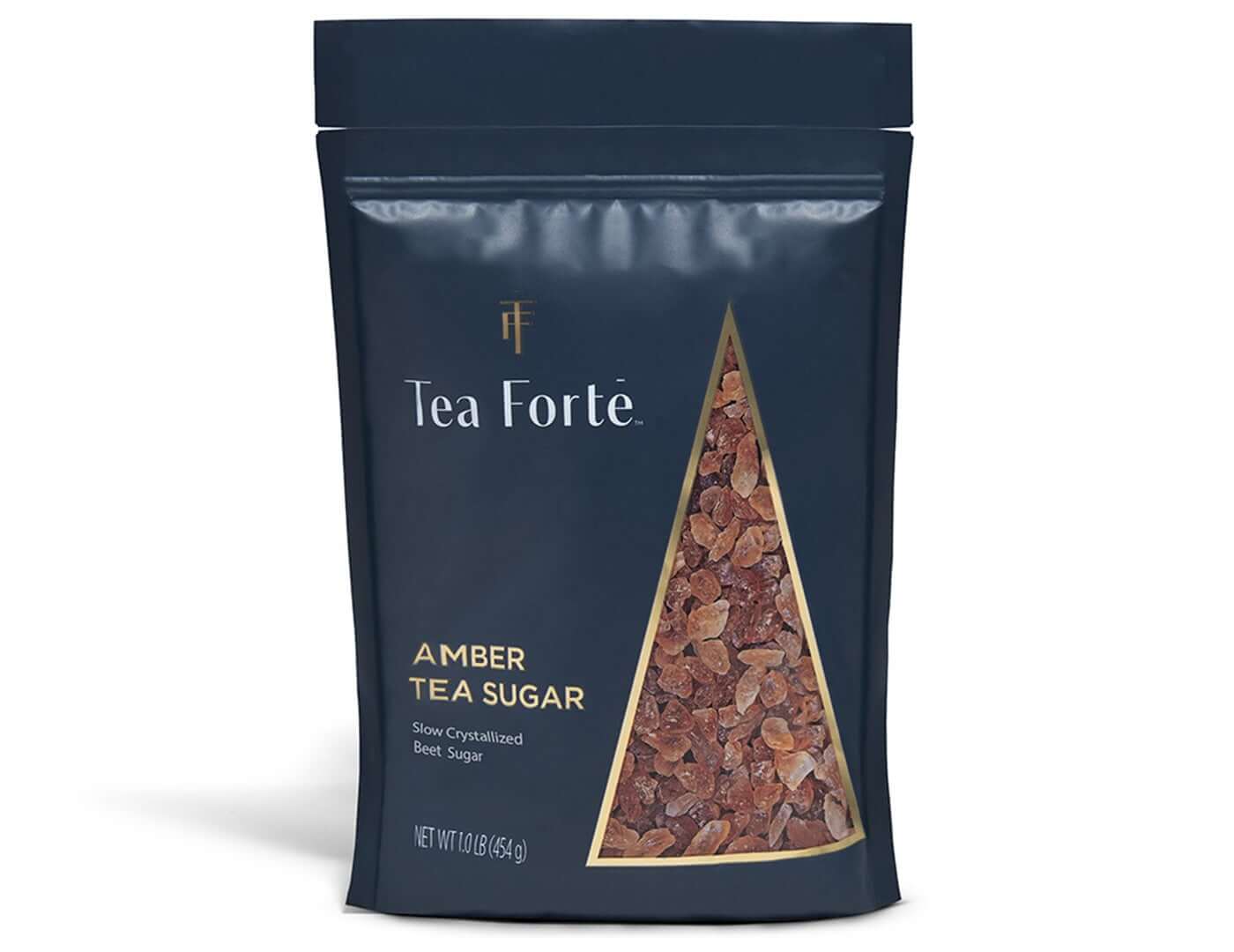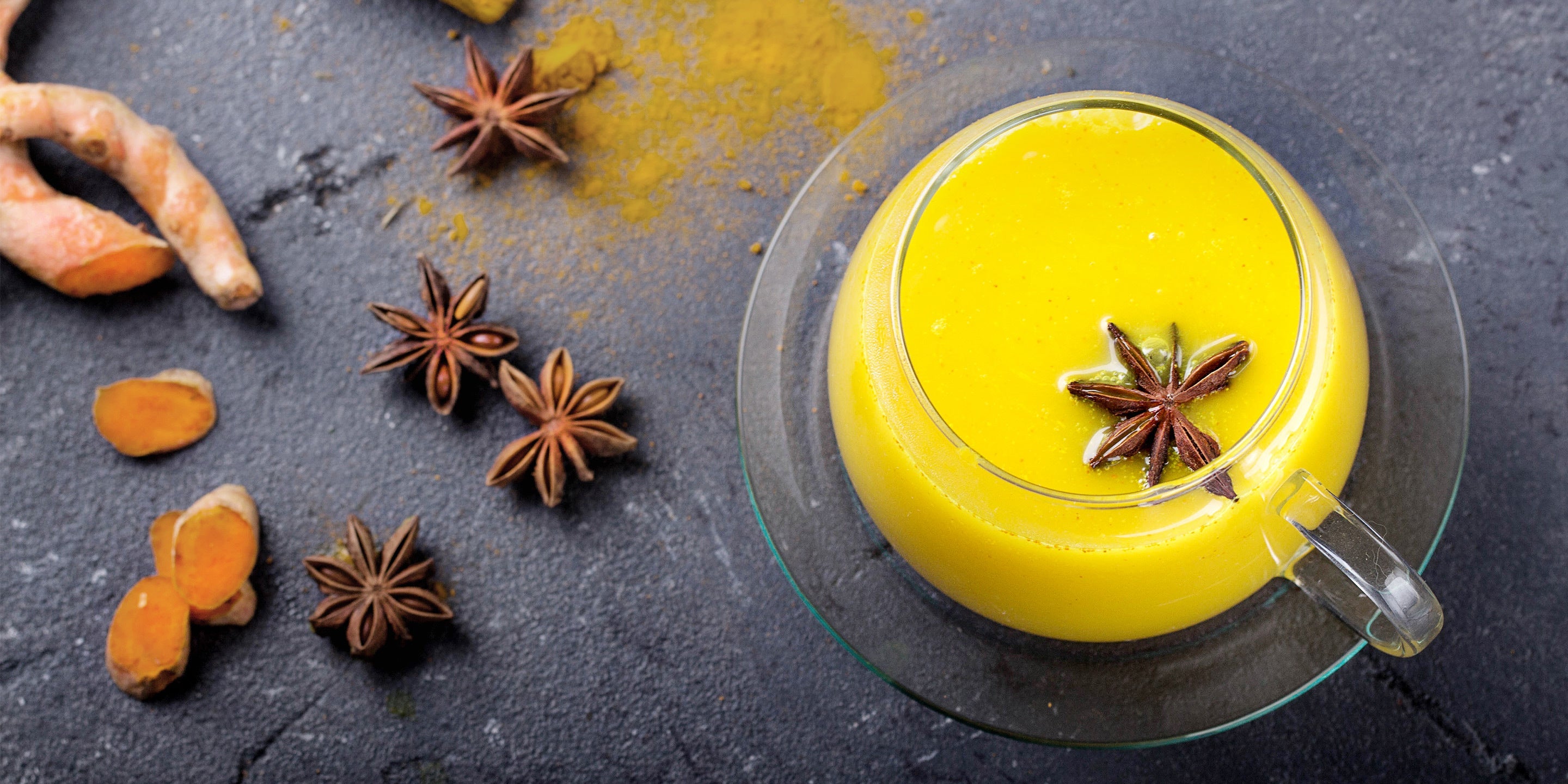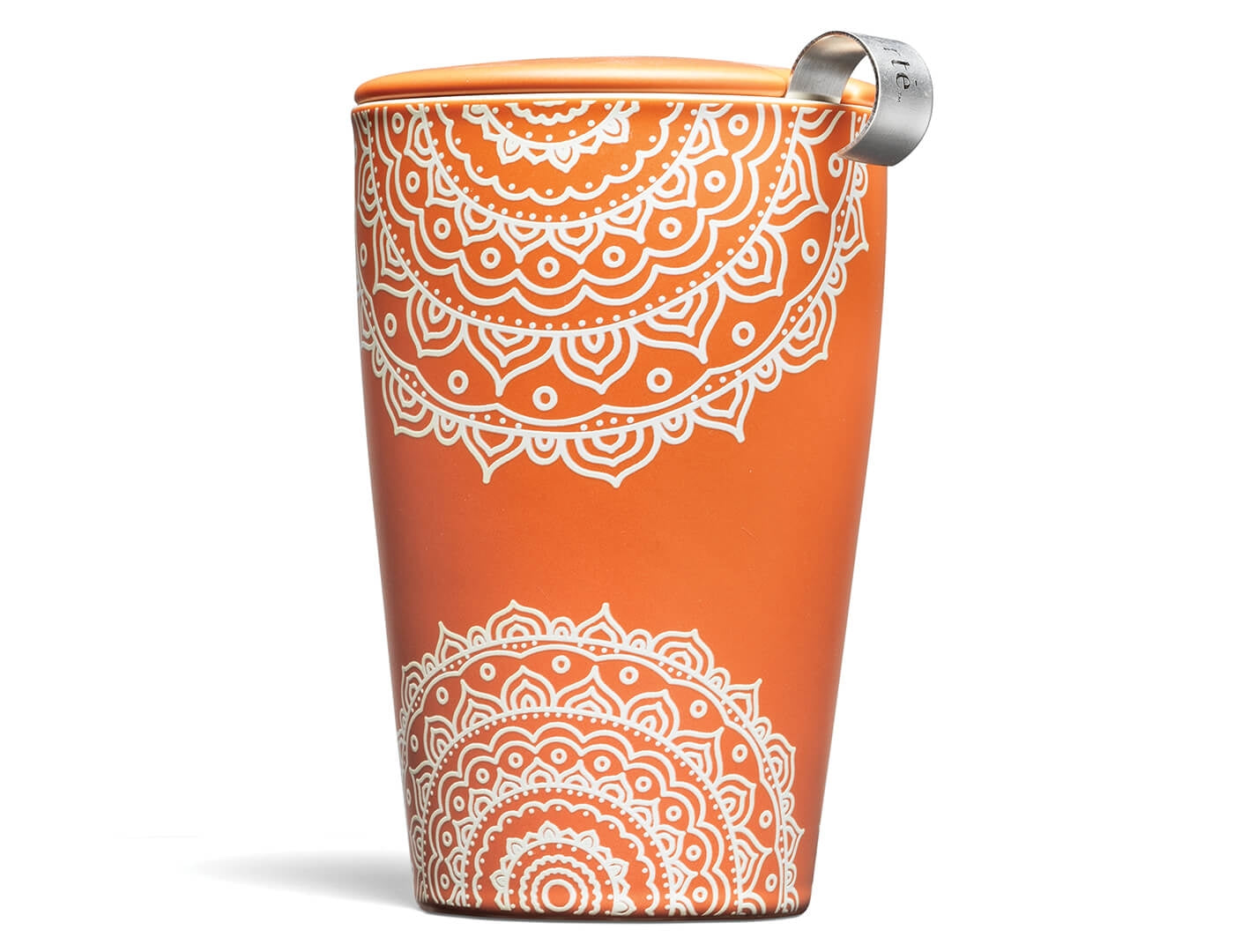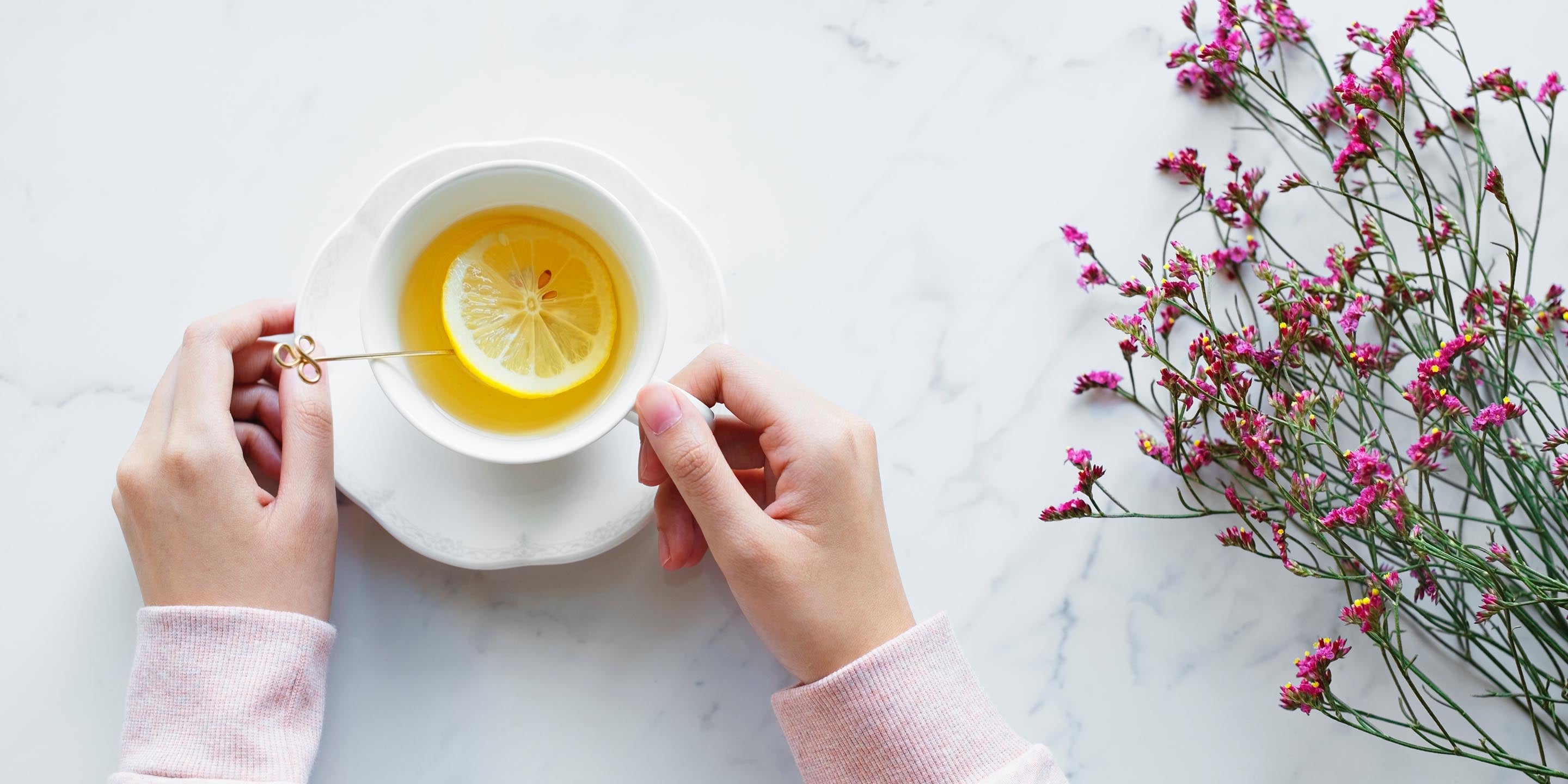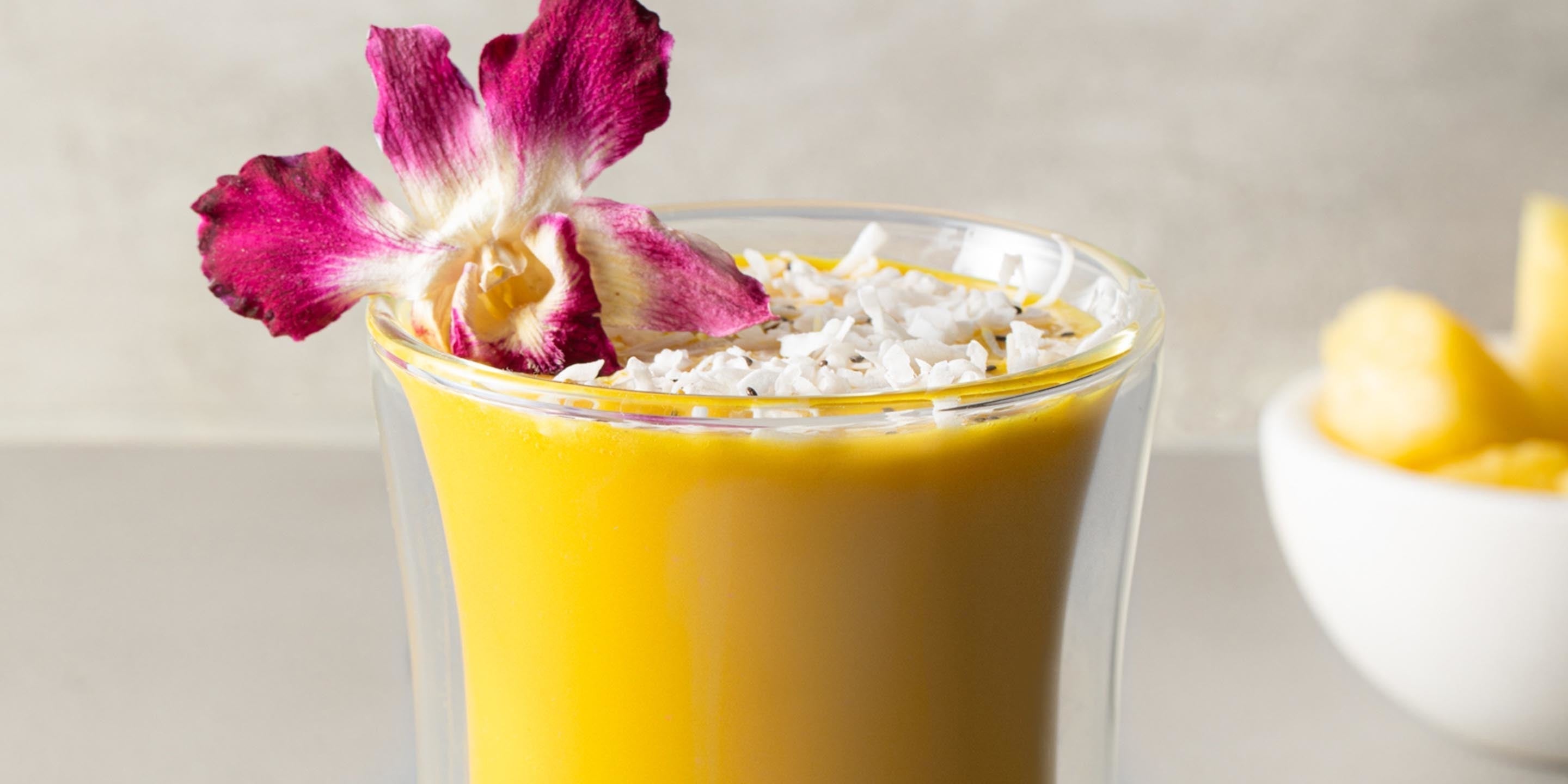Popular across a wide array of Asian cuisine and used in traditional Chinese and Ayurvedic medicine, turmeric is a pungent and comforting ingredient boasting a wealth of healthful perks. In India, spiced chai (the Hindi word for “tea”) is typically made with black tea leaves and spices like turmeric, green cardamom, cinnamon, fennel, ginger, and cloves, which are altogether referred to as “masala” (the Hindi word for “spices”). In other words, “masala chai” simply means spiced tea, and in many delicious beverages around the world, turmeric is the star of the show.

TURMERIC TANTRA CHAI
Infused with lemongrass, licorice, ginger root, cardamom, clove and a light touch of pepper, Tea Forté’s Turmeric Chai is a warm herbal blend that soothes the throat and the mind.
Incorporating more turmeric into your diet may aid the body in a number of ways, and tea is a simple and delicious way to enjoy a hearty dose of its complex flavor. Read on to learn about the health benefits of turmeric tea.
WHAT IS TURMERIC, AND IS IT GOOD FOR YOU?
Turmeric comes from a flowering plant called Curcuma Longa, which is closely related to ginger. Its roots are ground into a powder and used in many dishes and drinks on the Asian continent. It’s a primary ingredient in many curry recipes, lending an almost indescribable flavor to everything it touches.

Studies show a broad range of ways turmeric can alleviate minor symptoms of illness and boost the body’s ability to defend itself. Best known for its ability to lower LDL (or “bad”) cholesterol, lessen the effects of arthritic inflammation, and help to block the recurrence of ulcerative colitis, this spice is notable for its preventative properties. It may also lower blood sugar levels in people with diabetes and inhibit the blood clotting process in the general population, which means people who regularly take blood thinners or insulin regulators should check with a doctor before incorporating turmeric into their diet.
OTHER HEALTH BENEFITS OF TURMERIC TEA
For some osteoarthritis sufferers, turmeric has been shown to decrease pain associated with the condition, even acting as an equally effective substitute for ibuprofen in some patients. There’s also tentative evidence to support turmeric’s role in helping to prevent the onset of Alzheimer’s disease. Turmeric’s power comes mainly from its high concentration of curcumin, a polyphenol that can also be taken medicinally to treat various skin conditions, muscle soreness and other issues that may benefit from antioxidants and anti-inflammatory plant-based compounds.
A BRIEF HISTORY OF TURMERIC
Turmeric’s use as a culinary spice, a medicinal ingredient, and even a dye goes back thousands of years to the Vedic Age in India (c. 1500-500 BC), when the first sacred texts of Hinduism were being composed. Likely introduced to China around 700 AD and Africa a century later, nearly all of its production today still hails from India, which is also responsible for 80 percent of its consumption. Turmeric is one of the primary ingredients in “golden milk,” a warm Ayurvedic beverage enjoyed by millions of people hailing from the Indian subcontinent. Known by more than 50 names in Sanskrit, turmeric is called “haldi” in much of north India and “manjal” in much of south India. The word turmeric itself comes from the Latin phrase terra merita, which describes its bright, earthy color.
Infused with lemongrass, licorice, ginger root, cardamom, clove and a light touch of pepper, Tea Forté's Turmeric Chai is a warm herbal blend that soothes the throat and the mind. Less transparent and slightly thicker in consistency than most herbal tisanes, this smooth, sweet elixir is a comforting blend with an almost hypnotic finish. Free of caffeine and calories, it’s difficult to think of a reason not to enjoy a second cup. Turmeric Tantra Chai may be enjoyed on its own, with milk or sugar to taste, or as a latte with frothed milk.

TURMERIC TANTRA CHAI GOLDEN MILK RECIPE
Golden Milk, or "haldi doodh", is a comforting drink of warm milk infused with turmeric and spices used to aid many common ailments in Indian culture. Traditionally made with dairy milk, it also works well with other milk types, such as almond, coconut, cashew, or oat milk.
- Combine 1 tsp Turmeric Tantra Chai loose leaf tea (or 1 pyramid infuser) and 1 cup of milk in a small saucepan over medium heat. Stir often and heat until milk is steaming, about 3-4 minutes.
- Remove from heat and whisk in 1 tsp honey or sugar until fully dissolved.
- If using non-dairy milk, add 1 tsp of coconut oil to better absorb the turmeric and for a rich, tropical flavor.
- Pour the tea liquid into a mug, removing the infuser or straining out the tea leaves (a KATI® Cup is a great choice here).
- Garnish with a dash of cinnamon or turmeric powder and enjoy!
For a stronger yellow color and turmeric flavor, whisk in 1 teaspoon of turmeric powder, or even better, freshly grated turmeric root.
To treat yourself to a warm cup of Turmeric Tantra Chai, explore Tea Forté’s offerings and raise a cup to your health.
NOTE: These statements have not been evaluated by the Food and Drug Administration. These teas are not intended to diagnose, treat, cure, or prevent any disease. Always consult your physician for personalized medical advice or other qualified healthcare provider with questions regarding a medical condition.
Amber Tea Sugar one pound bag
Save 15% at checkout
